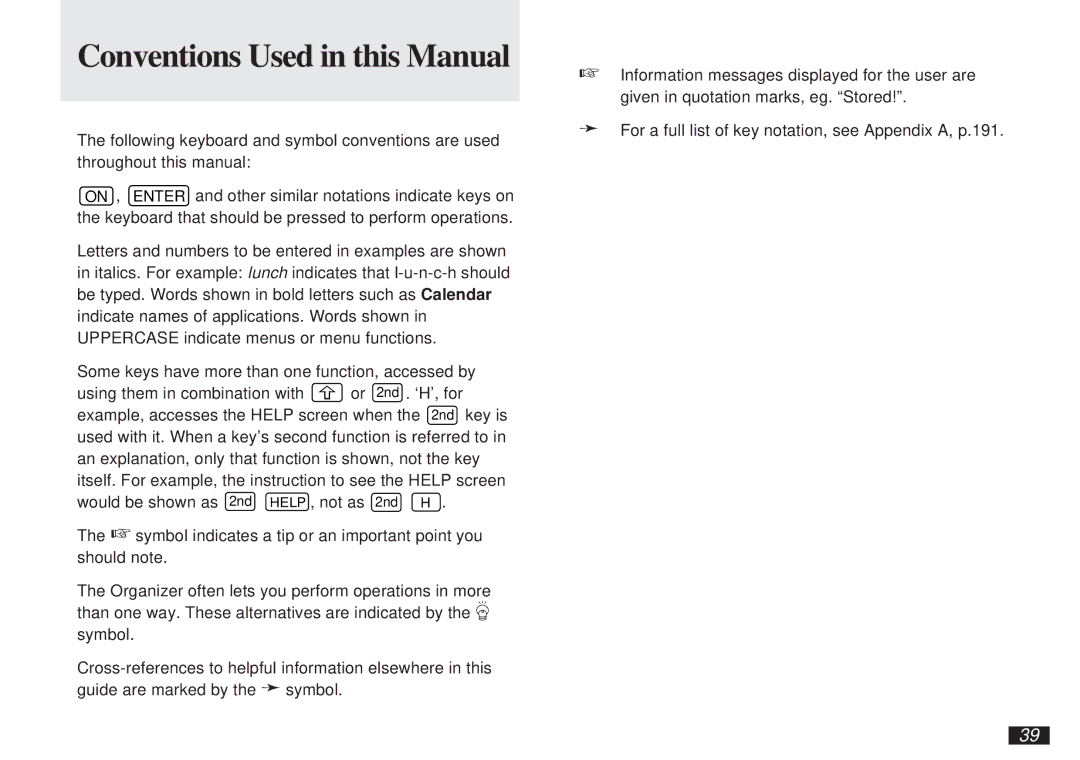
Conventions Used in this Manual
The following keyboard and symbol conventions are used throughout this manual:
ON , ENTER and other similar notations indicate keys on the keyboard that should be pressed to perform operations.
Letters and numbers to be entered in examples are shown in italics. For example: lunch indicates that
Some keys have more than one function, accessed by
using them in combination with |
| or 2nd . ‘H’, for |
|
example, accesses the HELP screen when the 2nd key is used with it. When a key’s second function is referred to in an explanation, only that function is shown, not the key itself. For example, the instruction to see the HELP screen would be shown as 2nd HELP , not as 2nd H .
The ☞ symbol indicates a tip or an important point you should note.
The Organizer often lets you perform operations in more than one way. These alternatives are indicated by the ![]() symbol.
symbol.
☞Information messages displayed for the user are
given in quotation marks, eg. “Stored!”. | 1 |
|
➛For a full list of key notation, see Appendix A, p.191.
39
